
Captain Alfred Tucker, 'C' Company, 1/5th Battalion, King's Own Yorkshire Light Infantry
21/12/2023
Background
Alfred Tucker was born at Masham, in North Yorkshire, on 25 March, 1887, the third son of Charles William Henry Tucker, a brewer, wine and spirit merchant, and Sarah Annie Tucker (formerly Edmundson), and baptised on 11 June, 1887, at St. Barnabas' Church, in Masham. He had three siblings: Charles Edward (1884); Frank (1885); and Frederick Edmundson (1888), all of whom were born at Masham. In 1891 the family lived at Park Square, in Masham, but by 1901 they were living at 17 Granville Road, in Scarborough, North Yorkshire. Four years later they had moved to 'Glencairn', 32 Park Avenue, in Harrogate, North Yorkshire.
All three of his brothers served in the Army in World War One.
Charles Edward Tucker initially served as lance corporal in the Lord Strathcona's Horse, before being commissioned as a 2nd lieutenant, in the Royal Warwickshire Regiment.
Frank Tucker served as a lieutenant in the West Yorkshire Regiment, later a major in the Machine Gun Corps, and finally as a lieutenant colonel in the Tank Corps. He was to win the Military Cross, was mentioned in despatches, and continued to serve post-war until 1935.
Frederick Edmundson Tucker served as a private with the 15th Battalion (1st Leeds Pals), the West Yorkshire Regiment. He was killed in action on 1 July, 1916, during the attack at Serre on the Somme.
Alfred Tucker was educated at Oliver's Mount School, in Scarborough, and in 1909 he was admitted as an articled clerk. The following year he qualified as a solicitor working for solicitors Booth, Wade, Farr and Lomas-Walker of Leeds, Alfred being listed as the resident partner at the Doncaster branch office, with the address of 19 & 20 Baxter Gate, in Doncaster, Yorkshire. By 1911 Alfred was residing, as a boarder, at 37 Thorne Road, in Doncaster, and in 1914 his address was given as 1 St. Sepulchre Gate, Doncaster, which was possibly his work address. The following year he was listed as belonging to Farr, Lomas-Walker and Tucker, solicitors of Doncaster.
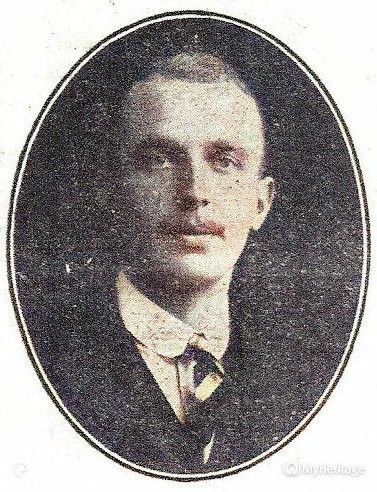
He was a Conservative, being the local honorary secretary, and worked for the Junior Conservatives and the Primrose League. He was also secretary of the Doncaster branch of the Land Union, and a prominent member of the Doncaster Parliament, making some effective speeches. He played rugby football for Doncaster, and as a candidate for appointment to a commission, his moral character was certified by A. P. Gower Rees, Clerk in Holy Orders. His religion was Church of England, and he was described as being 6' 0" tall: he was unmarried.
Military Service

Alfred Tucker was commissioned as a 2nd lieutenant, into the 5th Battalion, The King's Own (Yorkshire Light Infantry) (KOYLI) (Territorial Force), on 23 September, 1910. After three years he was promoted to lieutenant, on 21 September, 1913. On 4 August, 1914, when war was declared, the 5th Battalion, KOYLI (known at the 'Doncaster Battalion'), was based at the Drill Hall, in French Gate, Doncaster, part of the 3rd West Riding Brigade, West Riding Division. Alfred Tucker was mobilised with them, and promoted to captain on 1 October. In the November the unit moved to Gainsborough, in Lincolnshire, and thence, in February, 1915, to York, to complete its training prior to embarkation.
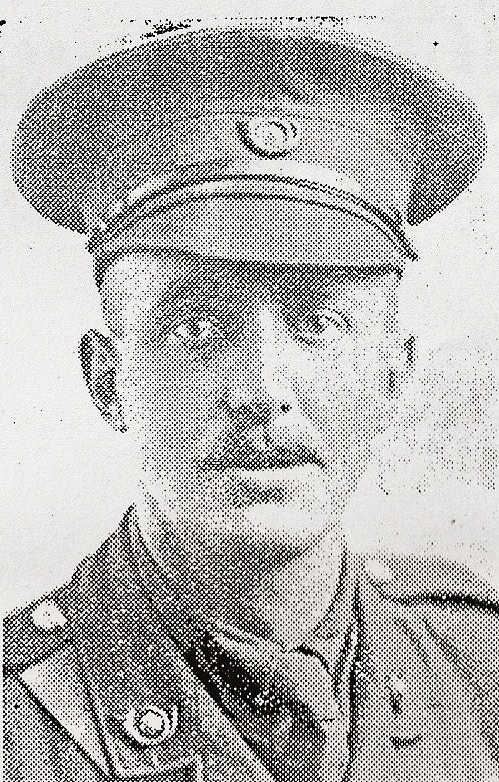
On 12 April, 1915, the unit embarked for France, where it landed the following day, with Captain Alfred Tucker commanding 'C' Company. On 12 May the formation became the 148th Brigade (1/4th & 1/5th Battalions, KOYLI; and 1/4th & 1/5th Battalions York & Lancaster Regiment), in the 49th (West Riding) Division. The division comprised the 146th, 147th and 148th Brigades. By 1 August, 1915 the 148th Brigade was serving on the Yser Canal, in Belgium, with the 5th Battalion, KOYLI, in billets at Elverdinghe, with about half the battalion out each night on working parties. On 6 August the Germans shelled the brigade heavily, including the brigade headquarters: the 5th Battalion, KOYLI, received a draft of 22 men, arriving from base, and relieved the 4th Battalion, KOYLI, in the trenches. Nothing unusual was reported the following day, although the artillery on both sides was pretty active.
Killed by Shell Fire
The battalion was still in the trenches on 8 August. The Germans shelled both banks of the canal as usual, including the old British trench which was occupied each night. At 6.30 pm a heavy bombardment was started by the British and French, by way of a demonstration and to assist the 6th Division trying to re-take the trenches at Hooge. At 8.30 pm the British communications trenches were heavily shelled, but the night time trenches were re-occupied by 9.30 pm: at 10.00 pm further shelling took place along the canal, accompanied by fairly heavy rifle fire. It was during one of these bombardments that Alfred Tucker was mortally wounded and died soon afterwards: he was aged 28. As well as Alfred Tucker, a lance corporal was also killed, and an officer and 27 other ranks were wounded. On 9 August the trenches and dugouts along the canal were considerably knocked about by the enemy, with a further three men being killed and five wounded. By 11 August the unit was back in billets, at Elverdinghe Chateau and farms close by.
Alfred Tucker's death was widely reported upon in the Yorkshire press, some stating: 'In a fierce bombardment only a few days ago, he was struck by a shell which injured him so severely in the head that he died two hours later.' He was buried at Talana Farm Cemetery, one of a group of farm houses named after episodes of the South African war, and used for burials by fighting units: thus, it can be assumed that Alfred Tucker died quickly before he could be evacuated down the medical chain. He was the first Doncaster officer of the 'Doncaster Battalion' to be killed in the war. He had been a Territorial Force officer for four years and 285 days, of which the latter 128 days had been spent in France and Flanders. On 22 August, 1915, a memorial service was conducted at the Doncaster Parish Church, as part of the Sunday morning service, attended by his parents and younger brother, Frederick Edmundson Tucker: his two elder brothers were by that time also serving in France.
Commemorations
Alfred Tucker lies buried at Talana Farm Cemetery, Ieper, West-Vlaanderen, Belgium (plot IV, row A, grave 6).
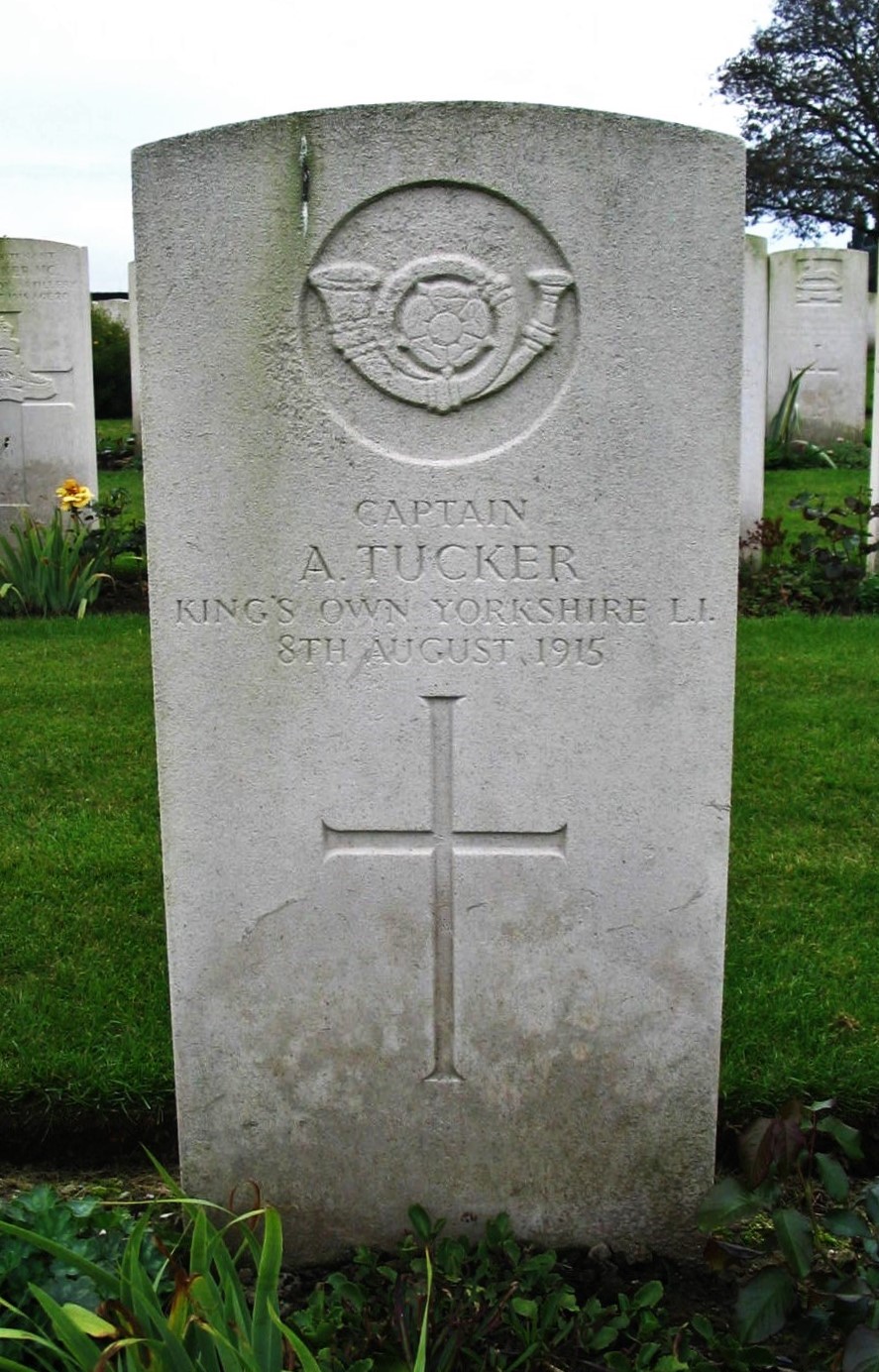
He is also commemorated on the parish war memorial inside St. George's Church, in Church Street, Doncaster, as well as the Harrogate War Memorial, in North Yorkshire. He is also commemorated on the Sheffield Law Society War Memorial, in the Law Society Hall, in Campo Lane, Sheffield, and by the Doncaster Rugby Football Club in the Yorkshire Rugby Football Union, In Memoriam 1914-19.

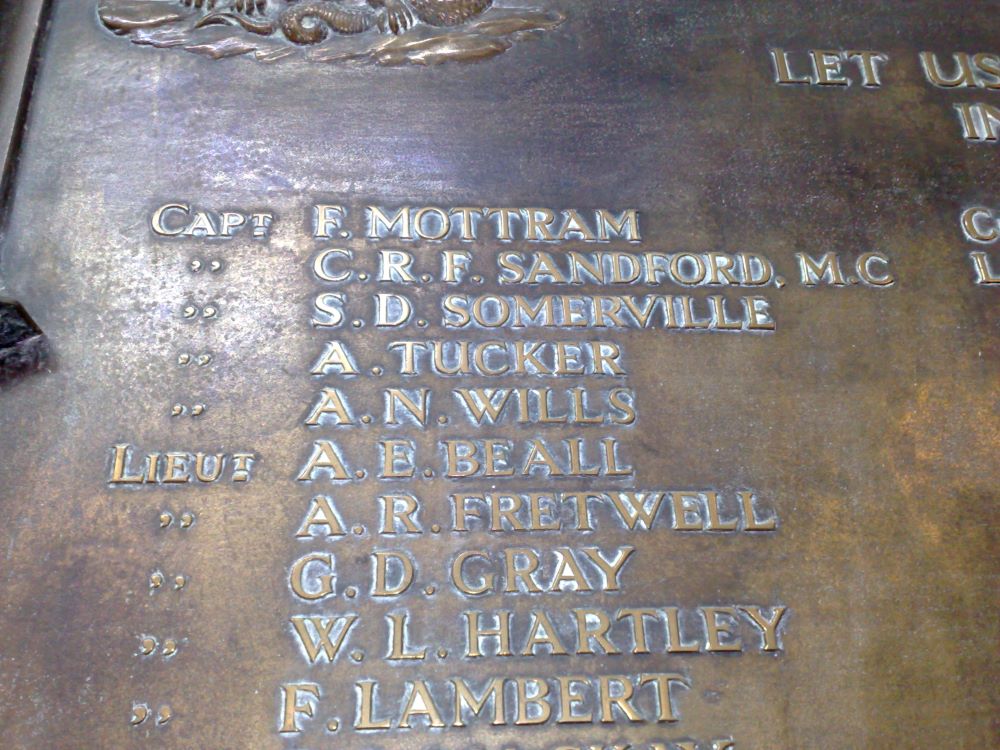
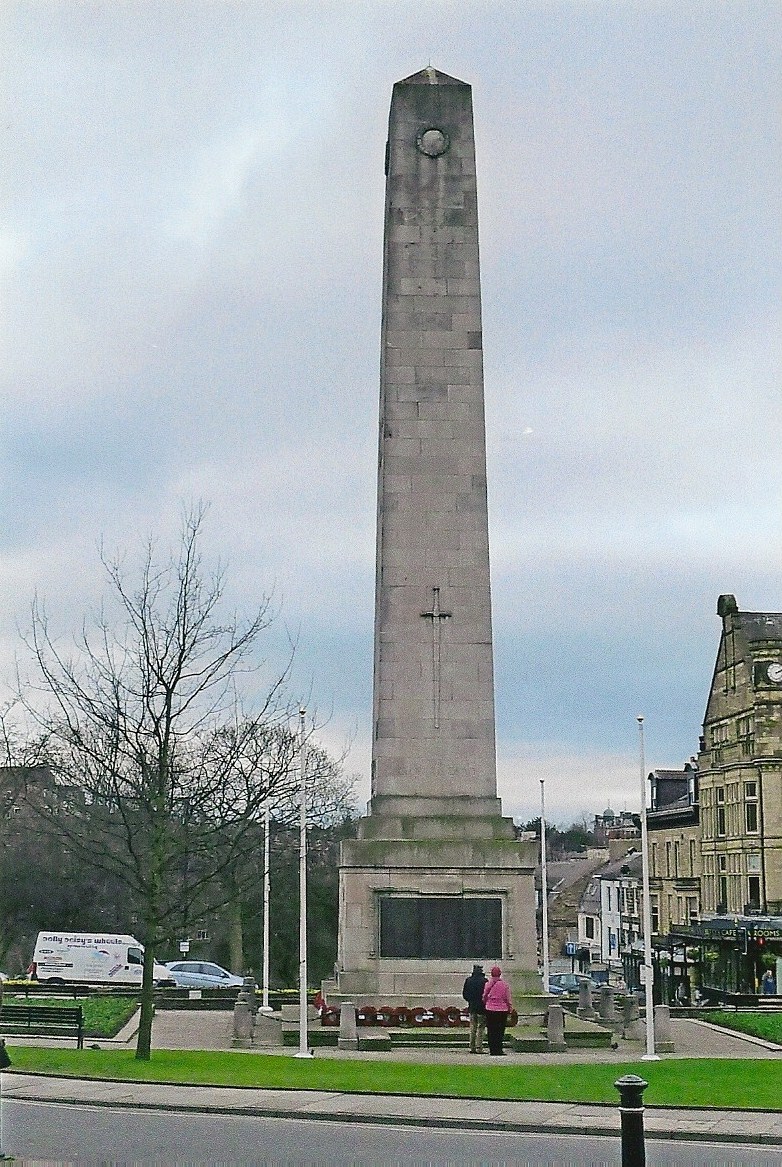


Medals
Captain Alfred Tucker's service earned him the 1914-15 Star; British War Medal, 1914-20; and Victory Medal, 1914-19. These, together with a memorial plaque and memorial scroll were sent to his mother.


